Explore the ScaleUp Annual Review 2020
Select a section to expand and explore this year's review..
CONTENTS

Introduction 2020

Chapter 1 2020
The Scaleup business landscape

Chapter 2 2020
Leading Programmes Breaking Down the Barriers for Scaleups

Chapter 3 2020
The local scaleup ecosystem

Chapter 4 2020
Shaping policy to foster UK scaleups: Breaking down barriers

Chapter 5 2020
Looking Forward

Scaleup Stories 2020

Annexes 2020
Scaleup Stories
87%
At the core of 87% is an intelligent app that takes users through a detailed, personal and private assessment of their mental wellbeing.
Connect Assist
Founded in 2006, Cardiff-based Connect Assist provides call centre and technology services to the public sector, charities and socially focused organisations.
Consilia Legal
Pragmatic and straight-talking is how the young Yorkshire law firm Consilia Legal describes itself.
Cutitronics
Cutitronics technology wraps together diagnostics and dispense control technologies with the Internet of Things.
Doris Jones
Southend-based domiciliary care company Doris Jones was providing 800-1,000 hours of care per week.
Frog Bikes
From kitchen table to the international stage, Shelley and Jerry Lawson have turned a fruitless search for quality children’s bikes into a fast-growing business.
Fundamentals
Today Jon Hiscock runs a 90-employee enterprise with a formidable reputation in the power industry.
FutureDJs
Austen and Scott Smart started FutureDJs in 2016 when they saw that the AQA exam board’s decision to recognise DJ decks as instruments.
Gousto
The company has hired approximately 200 people since lockdown, bringing employee numbers up to 1,000.
Iceotope
There is nothing new in making hot things cold by using liquids, says its CEO David Craig, but up until recently, its re-emergence in IT has long been ‘the next big thing’.
Loop Technology
At the heart of its growth is Loop’s capability in composites manufacturing, principally within the aerospace industry.
Neueda
In August, the software services company Neueda announced plans to double its payroll by creating 230 jobs in Belfast in a £20m investment.
Olivehorse
Since 2012, the payroll of this Coventry-based consultancy has grown to nearly 50 and its client base features global corporations and giant household brands.
OnBuy
Launched in 2016, the marketplace has ambitions to secure up to five per cent of the £84bn UK eCommerce market in the next three years.
SHE Software
During 2019, it secured more than 80 new customers and an increase of 54% in orders. Its client base now numbers more than 300 organisations.
The Strings Club
The Strings Club has welcomed nearly 500,000 children on Ofsted-registered holiday camps in seven locations.
TouchByte
2020 was going to be a big year for TouchByte. And it has been. In fact, it’s put the Cornish company on a potentially huge growth trajectory.
ZeroLight
In Newcastle, ZeroLight is revolutionising the way the world buys cars and power-sport vehicles. And the impact of Covid has been to accelerate its global scaling.
87%
Andrew Bibby is a great advocate of Peter Drucker’s dictum, “If you can’t measure it, you can’t manage it.” The emerging scaleup 87% is applying this to mental well-being.
“If you talk to people about their physical health and how to improve it,” continues CEO Bibby, “they know about exercise and diet, about 10,000 steps and five a day; people know how to get physically fitter. But ask people about how to get mentally fit and you will get as many answers as you ask questions. For me, mental health is about self-awareness. If you take a few minutes to reflect on yourself every day, your mental health will improve over time. It’s really that straightforward.”
At the core of 87% is an intelligent app that takes users through a detailed, personal and private assessment of their mental wellbeing. From this data, users receive a mental fitness score – which they can track over time – and personalised solutions that ensure they build resilience and self-awareness. The app contains numerous programmes and tools for users to measure, understand and improve their mental wellbeing and it is supported by a weekly digital publication and a series of podcasts. (The name of the company comes from only 13% of adults who report living with high levels of good mental health – “We represent the 87%,” says Bibby.)
The 87% business model is to license the app to organisations. While the individual user owns their own personal data (and nobody else sees that), the platform’s diagnostic tool aggregates this data to provide insights to employers, so they can understand the mental wellbeing of their workforce. “The data enables you to see all those areas where training or investment is required,” notes Bibby.
The organisation can turn 87% into a publishing platform holding everything that it offers to an employee for their well-being and supported by tailored content that is relevant to that organisation – the mental wellbeing needs of an emergency service, for example, will differ greatly from a management consultancy.
“There are strict rules and regulations around health and safety,” says Bibby, “but the protection of mental health still seems to be considered an after thought. Every organisation must look at the mental wellbeing of their people, particularly at a time of huge change, not just as an employee benefit but as an absolute must-have. It shouldn’t be a benefit – it’s a human right.”
The outbreak of Covid accelerated early sales, particularly in the public sector and the NHS, for frontline workers who required access to mental health support. “We were due to launch for one client in May,” recalls Bibby. “When the pandemic struck, they asked us how quickly they could get the platform up and running. Organisations could see that the mental wellbeing of their staff was going to come under a lot of pressure and needed help.”
But the broader market is still immature. On the one hand, it’s highly competitive – there are plenty of mental health and wellbeing products and services out there – but few organisations have dedicated budgets in place. Other organisations are willing to invest in this area. “There are some incredibly forward-thinking corporations who are onto this,” says Bibby.
The brainchild of former Ladbrokes CEO Richard Glynn, 87% was formally launched in April 2018. Bibby, a veteran of the digital agency world, had joined forces with Glynn in the previous year to help develop the idea, identify potential customers who could help build the initial product, and to raise a first angel finance round.
Using an external development team in Poland, the product had its commercial launch in early 2019. Admittedly from a small base, revenues are expected to grow by up to 400% next year.
87% remains a lean operation. As soon as the Covid outbreak began, Bibby cancelled an office contract to save money. Now, while still working from home, the team has started to go into London on a fortnightly basis. “We had started to miss each other and the idea generation that comes with being in the same room,” says Bibby, “so we have rented a nice big working space that ensures people to feel safe and that we get that face-to-face interaction.” The company is recruiting and has seen huge numbers of applications for its advertised roles.
To date, angel investors have supported the growth of the business; 87% raised a third round in May 2020. “We’ve been lucky with our initial investors as they have all stayed with us,” says Bibby. “During the pandemic, they gave us a good route forward.” To scale the business faster, the next step will be to hold a Series A round seeking institutional VC support. “We will need a greater amount of capital and the networks and expertise that those institutions can bring.”

Chase Plastics
Chase Plastics makes recycled plastic pellets. Based in Brandon, Suffolk, the factory of this 55-year-old business has an annual capacity of 10,000 tonnes. But that is set to change, big time. That capacity will more than double over the next 12 months.
“There’s no real option but to grow dramatically,” says CEO David Harris. “We have a once in a lifetime opportunity where the market is going to multiply in size, so we have to be ready to grow incredibly quickly.”
The reason for this is regulatory change. From April 2022, the UK Government is set to introduce a tax on plastic packaging with less than 30% recycled content. The tax will add about 20% to material costs which, in a single digit margin industry, is a big deal. “Many businesses will be forced to change, so we have got to have the capacity and confidence on the ground to take advantage of it,” he says.
The actions of other national governments are also helping Chase Plastics’ market position. “We buy the cleanest best scrap polythene film we can find but it’s expensive,” says Harris. Up until now, he says, government policy has encouraged the exporting of plastic waste – “which makes subsidised exporters our competitors” – so he welcomes the recent moves by countries such as China and Turkey to restrict such imports but calls upon the UK government “to stop incentivising the export of plastic waste.”
This means that the company’s customer base is set to expand; historically, it has supplied specialist customers making products such as refuse sacks, but the new customers will be makers of polythene film for packaging. “This is where the growth will come from,” he says. Currently the majority of its active customers are UK-based, but Harris expects to see exports grow.
An industry veteran of 30 years, Harris and co-owner Cameron McLatchie ran British Polythene Industries prior to its sale in 2016. After considering opportunities to move back into the industry, they bought Chase Plastics which was then a family business – and retaining Jessica Baker, daughter of the founder, as the managing director. “Jessica has been remarkable,” says Harris, “she has bought into the vision and is now an agent of change.”
Chase Plastics has a healthy balance sheet and Harris says that he is comfortable with investing more equity in the company. “We’d like to do further M&A, whether to acquire similar or parallel businesses. There’s plenty to go at we are great enthusiasts for plastics recycling and manufacturing and believe there are great opportunities in the industry.”
Much of his industrial career was spent in Scotland, which is still home for him, so the acquisition of a business in Suffolk meant that he has reached out to the local support ecosystem.
“In the past we had a very good relationship with Scottish Enterprise who supported a lot of investment and jobs, which played a big part in where we got the business to,” he says, “so it was only natural to engage with the people in the area who support growing businesses. It’s always good to have contacts particularly when you are not local to the area.”
The newcomer to the region turned to ScaleUp New Anglia (SUNA). “We had some good early conversations and a positive start around skills,” he says, and then Harris joined SUNA’s Mastermind programme – a peer to peer programme for larger SMEs. He joined the programme before the Covid-19 lockdown. What had been a constructive network of diverse businesses in the area quickly evolved, says Harris, “into a weekly two-hour conference call which became incredibly powerful.”
From that, SUNA recommended Harris join the Goldman Sachs 10,000 Small Businesses UK programme. For the former corporate executive, it has been an eye-opener.
“When you lead an organisation that employs several thousand, and you have a large team around you of highly experienced colleagues including a board and non-executive directors. Your circle of advice is massive. And you have got rigour and challenge around you, and people filtering and refining information. Now I’m here in an office on my own with none of that. The Goldman Sachs 10,000 Small Businesses programme effectively gives a small growing business the benefit of what is usually an annual process in a larger organisation. It’s a facilitated strategic review of your business. It’s astonishing how much comes through from this.”
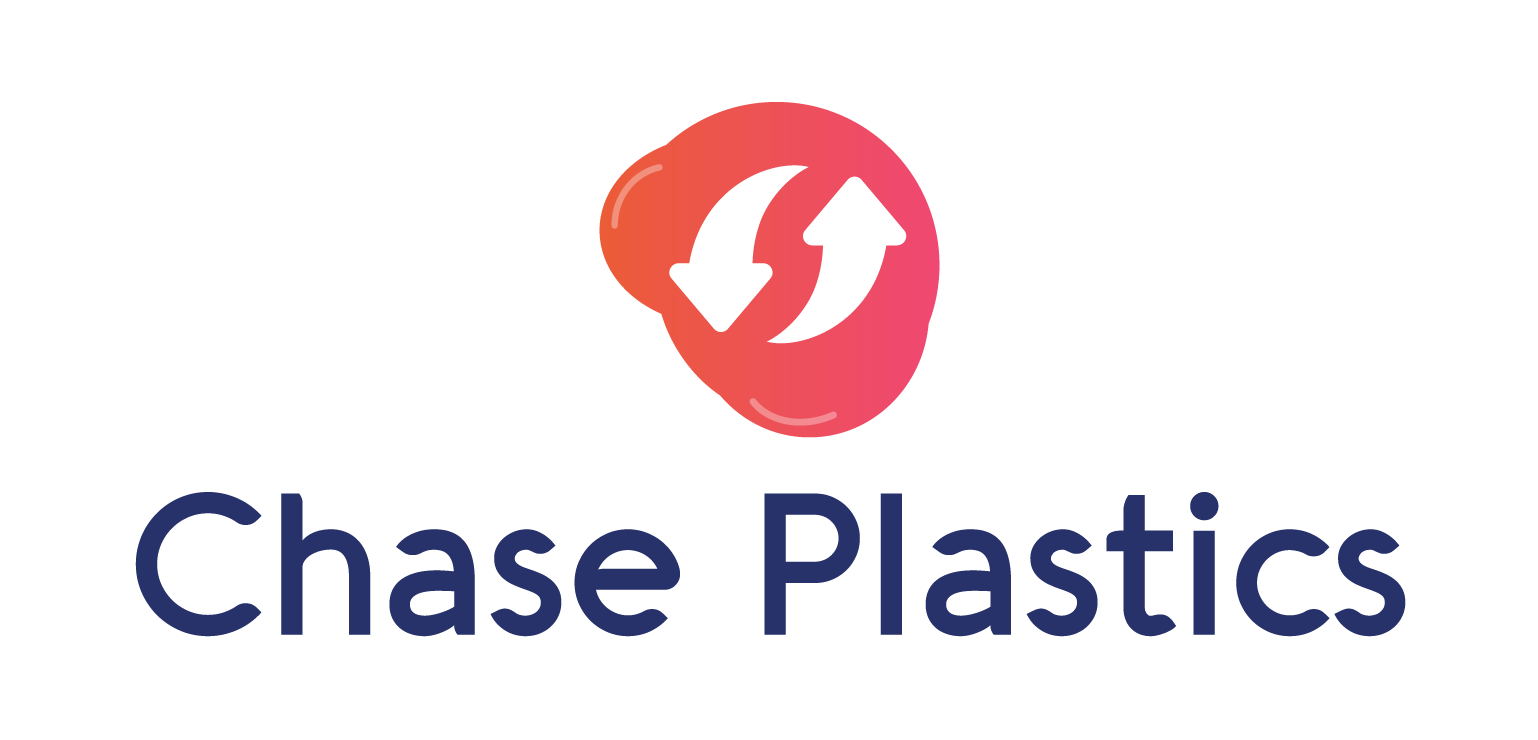
Connect Assist
Founded in 2006, Cardiff-based Connect Assist provides call centre and technology services to the public sector, charities and socially focused organisations. Its clients include the Royal British Legion, Mind and The Prince’s Trust.
Since 2017, when CEO Ron Moody led an MBO, the company’s turnover has risen from £5m to £13m while employee numbers have increased from 140 full-time employees to 370.
But this has been no private equity-powered acceleration. “It wasn’t a sell-out to an institutional investor,” says Moody. “Our founders became investors and non-executives and we supplemented the transaction with bank finance. The MBO was an ethical way to do things so that the founders could hand over the baton.”
With that transition, Connect Assist has broadened its leadership team and brought in a new generation of managers. “Our founders had taken it to a certain stage, and it needed a wider body of expertise to scale it from there,” he says.
The scaling has not been stopped by Covid. This year, Connect Assist has hired 70 more people. “While most were furloughing, we were doing the opposite.”
When the Covid pandemic hit and the UK went into lockdown, Connect Assist has had to cope with the upsurge in demand for its services. “We have seen extraordinary levels of demand, up to ten times the volume,” says Moody.
That’s because it operates at the sharp end of helpline services, providing advice, support and signposting on benefits, debt and money issues, or for people experiencing mental ill health, loneliness or emotional distress. “Every day we support hundreds of people facing severe challenges in their lives and many more simply looking for answers delivered with knowledge and empathy,” he says.
Being based in South Wales matters; “this is an area that has gone through the mill, so our people here know about the issues that others are phoning for help about. This is work that is transformational, not transactional.” He says this year the company has been inundated with job applicants with “unbelievable skill levels, including pilots, engineers, creative directors and lawyers.”
The company had all the kit for home working from the start. Since 2016, Connect Assist has focused on enabling its employees to work from home securely. (And there is a huge difference between home working and secure home working, he adds.) “I would love to tell you that this was visionary, but it was simply good business continuity planning,” says Moody.
“We are taking critical calls 24-7, 365 days each year, and these can include suicide calls, so we have to be able to deliver our services. In the past few years, we have had extreme weather conditions such as the Beast from the East and heavy floods when we couldn’t gain access to our offices.
There are two big challenges for the leadership team, he says. One is managing this exceptionally rapid growth. “We had set ourselves 20% top line growth for 2020 but will double that. We have set 20% for top line growth in 2021 but will probably surpass that.”
The second big challenge is the extra effort required to keep staff mentally well while they are working from home. “Every employee is having to cope with Covid so we have to be really on the ball to look after our people,” says Moody. This year, Connect Assist has laid on daily counselling – both in groups and one-to-one sessions so that everybody has someone to talk to, in addition to their managers.
As a first-time CEO, finding someone to talk to has been equally valuable for Moody. The company has participated on the NatWest Entrepreneur Accelerator and Next Level programmes.
“No company is an island,” says Moody. As he and his leadership team found the NatWest Accelerator programme “stimulating,” Connect Assist has maintained its presence on the programme to use it as a leadership development programme for the next tier of management. Meanwhile, as a first-time CEO, Moody is a big fan of the mentorship and peer network that he receives from the Next Level programme.
“It’s great to have a soundboard,” he says. “No matter what you think you know, there are others who know more. I am always picking up snippets of wisdom from others in my network.”
He predicts demand for Connect Assist’s services will increase in 2021. Government tenders that were put on hold will start to come out; “there’s a real opportunity to win a decent slice of those contracts,” he says. There could also be acquisition opportunities as he believes “quite a number of contact centres won’t make it.” While Moody says Connect Assist will stay away from the commercial sector, it will broaden into new markets such as health.
Unlike many players in the contact centre industry, every member of Connect Assist’s staff is on a permanent contract. Retaining talent to build up experience, and therefore its capacity to take on larger and more complex contracts.
We have a mindset that this is a long game, he says. “We don’t want boom and bust, we want consistent sustainable growth.”

Consilia Legal
Pragmatic and straight-talking is how the young Yorkshire law firm Consilia Legal describes itself. And it is down-to-earth terms that director and co-founder Marie Walsh describes how, when she co-founded the firm in 2014, it was initially going to be “a back bedroom job” enabling her to balance her family and professional life. “I wasn’t focused on it becoming a big venture.” A furiously busy first year quickly posed the question: to turn down the extra work or expand the business. It didn’t take long to answer.
Today the firm, which operates solely in the two areas of family and employment law and has a strong focus on the use of mediation, has become a 12-strong firm with its office in Leeds and a satellite presence in Harrogate.
The nascent business received plenty of support from the local business community. Former clients came onto the books. “There has been amazing goodwill from other entrepreneurial people across the city,” she says. The firm regularly receives work from other larger law firms. “As we are not competitive with the bigger practices, they will refer work to us when they can’t take it on themselves,” Walsh explains.
She describes herself as an accidental entrepreneur. But what started with modest ambitions changed when she joined the Goldman Sachs 10,000 Small Businesses UK programme. “It was full of phenomenal people who were normal people,” she says, “and it provided a very supportive environment. I am not very good at saying that I am proud of our success but the Goldman Sachs programme made me more comfortable about being successful.”
As a result, she set the goal for Consilia Legal to increase its fee revenues in 2020 by more than 40 per cent.
The only reason that it won’t hit that target this year will be Covid. One factor that caused business to slow down was that Royal Mail stopped delivering to Consilia’s office. Although the firm’s IT infrastructure had been established with secure working from home in mind, the analogue world of family law documents meant that court deadlines and judgements were all in the post. “We didn’t get post for four weeks after lockdown, which was one of the most stressful experiences,” she says.
But Covid is driving change in the legal world. Family documents are starting to go online. Witnesses at employment tribunals are now appearing on screens.
And demand for online mediation services is rising, so Consilia has launched an online mediation service. It’s not just a means of overcoming the immediate logistical problems thrown up by Covid; it has highlighted the wider benefits of online mediation, reducing travel time for parties, speeding up the process and taking the potential heat out of face-to-face encounters. “It is leading to better resolutions,” says Walsh. And it’s leading to more business – “our online mediation services have been a brilliant innovation and we are getting inquiries from across the country.”
From the start, finding good affordable premises in the centre of Leeds has been a problem for the firm. “We need to be in the LS1 postcode for the proximity to the courts and to other law firms but also for our online visibility,” she says. However, the impact of Covid may have an upside in this respect.
“We have a nice office that fitted 12 people pre-Covid but it was going to be very costly to find extra space to accommodate our growth. Now, post-Covid, we could double our number of staff using the space that we have. We can invest further in technology rather than property. What was a big headache is less of one.”
With confidence fuelled by her attendance on 10,000 Small Businesses UK, Walsh has secured a Bounce Back Loan for the firm as well made applications for a grant from the Leeds City Region LEP – both will be used to invest in people and technology.
She is optimistic about 2021. “Of course, nothing is predictable and our expectations shift on a monthly basis. But I am confident that we will achieve £1m fee revenues – and if you had told me four years ago that is what we would be heading for, I would have just laughed.”
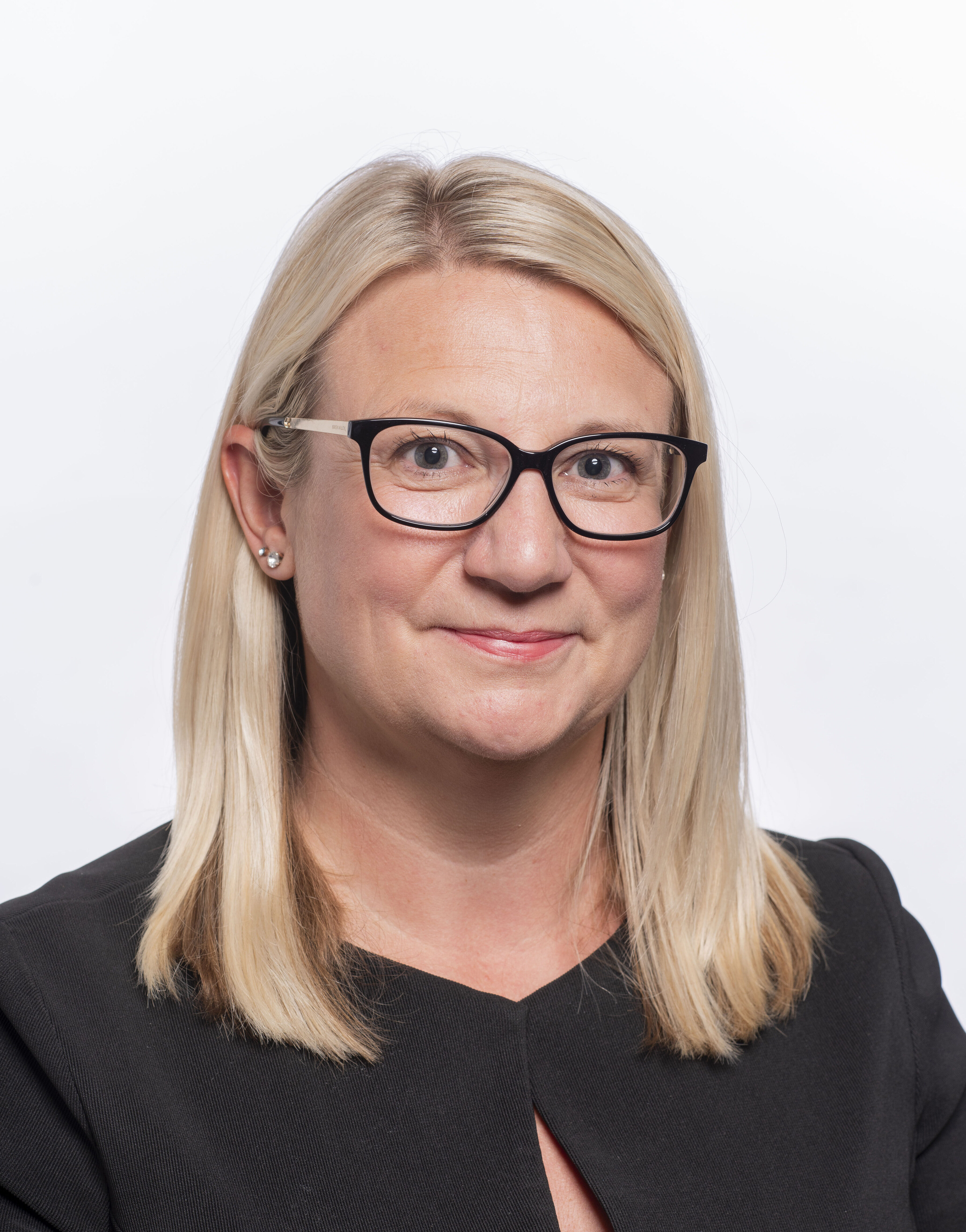
Cutitronics
Talk about having skin in the game. The lightbulb moment came to David Heath at a skincare conference.
“What I learned on that day was that, at the time, the personal skin care industry was focused solely on making advances based on formulation and chemistry,” says the biomedical engineer. “It was just looking at improving the ingredients to improve its products. I also learned that nobody knew how consumers used these complex manufactured products when they took them home, and consumers didn’t always know how to use them correctly. And I thought, ‘this is madness’.”
Heath saw there was an opportunity to take a leaf out of the medical playbook where, for example, diabetes patients are treated using a combination of drugs, smart devices and data.
Having spotted the gap, Heath spun Cutitronics out of the University of Strathclyde in 2014. “It wasn’t an academic or clinical project, this was a commercial project to create a holistic solution.”
Cutitronics technology wraps together diagnostics and dispense control technologies with the Internet of Things, together with an app that gathers all the data and helps people adhere to their skincare regime.
The result: a technology that will be white-labelled for the personal care, health and wellness industries, allowing brands to connect directly with their customers by offering personalised advice based on the individual’s unique skincare requirements in real time. Cutitronics is focused on facial skincare products including serums, oils and moisturisers, whose biologically active ingredients build up over time, where up to 12-16 weeks is required to achieve optimal results and where a user’s adherence to the regime is vital.
Over the six years, a number of institutions have supported Cutitronics’ journey, including the University of Strathclyde, the Royal Society of Edinburgh, the Royal Academy of Engineering and London Stock Exchange ELITE.
An early award from the Royal Academy of Engineering was followed by a key introduction to the FTSE-100 chemicals manufacturer Croda, who became a strategic investment partner in the young business. “They are selling to the same customers we are seeking to partner with, so they have a deep understanding of the market. There was great synergy but no competition. They have been an excellent company to work with and provided phenomenal support – it’s the extra value beyond the cash that made the difference!” He adds that he is “always on the lookout for complementary strategic partnerships, perhaps in the digital retail or skincare industry. There is just so much value in the right collaboration.”
The Royal Academy of Engineering also introduced Heath to ELITE. “The education, speakers and introductions through the ELITE network have all been of high quality and very beneficial to the business,” says Heath.
This was to be the year of the first major customer trials but the impact of Covid was to delay them.
Project plans suffered, too. “It was so frustrating,” he says. “We had a piece of kit on a supplier’s bench, a day away from being shipped to us, and we could not pick it up. And it was integral to our plans. If lockdown had happened a day later, we could have taken delivery of it.”
But there were also positives. With spas and salons closed, professional skin care brands had lost their physical point of contact with customers. They needed to reach out to them beyond these spaces. And, while they were unable to run their daily business, the industry did have more time to talk with Cutitronics. “It has scaled our opportunity,” says Heath, “as we are now creating a direct to consumer channel for those brands. Before Covid, we had thought it would take three years to get there but now… it’s now!”
“This year we have had so much input and consultation about the customer journey. The trials that we are running this side of Covid are very different to the ones before.”
In 2021, Cutitronics will be putting flags firmly into other markets, opening up access to its technology with major corporations and independent brands in the UK, the EU and the US. The first step has been to open an office in that capital of cosmetics, Paris.
The workforce currently stands at 25, boasting experience from corporations and industries as diverse as the space industry, Apple, MasterCard, Dyson, Plexus, Jabil, GCHQ and Estée Lauder. “We have been very fortunate with the skill set that we assembled but it is still difficult to fill some posts.” However, he adds, “Covid is releasing more people into the marketplace.” He would like the company to remain physical and local in East Kilbride; “we are very multi-disciplinary so we have had an open plan, collaborative office – and I would like to keep that.”

Doris Jones
In the autumn of 2019, Southend-based domiciliary care company Doris Jones was providing 800-1,000 hours of care per week. It was rated as Outstanding by the Care Quality Commission. It had a strong local presence and awareness. It was profitable and its staff turnover levels were comparatively low in an industry known for very high rates of churn.
But for Caroline Southgate, there was an itch – and she didn’t know how to scratch it. As the majority shareholder, she and her business partners had wanted to scale the business – there had been talk about opening other branches – but her fear had always been about losing the quality of the care they provide.
There was capacity for the business to grow and, in her mid-fifties, she wanted to be more than just the face of the business as its registered manager. “I’m a physiotherapist by training, so I didn’t know how to have conversations about scaling up,” she says.
Then, waiting for a daughter to arrive at Stansted Airport, she came across Jamie Waller’s book Unsexy Business.
In it, Waller kept referencing Cranfield’s Business Growth Programme (BGP) and The Supper Club as sources of support. Piqued by the idea of going to a business school, she applied to the BGP.
“I was a bit daunted at first but I loved every minute of it. It did put me in my uncomfortable zone; when you start and grow a business, nobody coaches you about your role and how it might develop, after a lifetime of looking after people, pinning down what I wanted was difficult. I came away from the course armed with a lot of confidence and feeling a foot taller.”
She also came out of it with a punchy business plan (one which won that particular cohort’s prize as the best of its year). “One thing I learned from the BGP was that we had a solid foundation for growth.”
One segment of the BGP course focused on business continuity – but unsurprisingly it didn’t provide the full playbook for a domiciliary care business facing the impact of a global pandemic.
However, Southgate was prepared.
In January, en route back from Australia, she saw the Hong Kong population wearing face masks – and immediately started to plan.
“As a care business, we had always used gloves and aprons but not face masks so we doubled up on our PPE immediately. We have always been financially prudent and had a contingency fund for emergencies. I had always thought it would be used for an IT crisis but we were able to spend it on PPE without the worry. We were weeks ahead of government guidance.”
She stepped up to the leadership challenge. “I saw that our role as directors was to provide an umbrella for our staff and our customers. We produced a video for the families of our customers, saying that we would continue to provide the care and that we had the right equipment. In the weeks before lockdown, the company’s 80-strong staff of full-time office workers and part-time carers were split into two teams. We kept reminding our carers that this was about infection control and that many of the practices – washing hands, wearing gloves – were second nature to them, and that we had the equipment that they needed.”
She accompanied the home carer who had to make the first visit to a Covid positive customer coming out of hospital. “We didn’t make a fuss; we just kept calm and cared on.”
And here’s the important evidence. Since March, Doris Jones has provided 40,000 care visits without a single case of transmission of the virus between its customers and staff.
As well as the BGP, Southgate benefitted from another coaching programme provided via the NHS. The initiative provided Army coaching and she was paired with Lt Gen Richard Cripwell.
“In the army you ask your soldiers to go into a situation where they might die but that’s hardly the usual situation in the care sector. But this year we have been asking 55-year-old women with children and grandchildren to go out to work and potentially contract a fatal virus. From my sessions with Richard, I learned to make the most of what the Army called ‘the operational pause’ in the summer. We planned for winter in June and July, and now we are planning for the spring. That mentoring was so valuable. The NHS doesn’t usually share much with social care but fortunately they did with this. It was one of the most innovative things to happen in the NHS since Covid,” she says.
She is now focused on the goal set in her business plan: to double the size of this business in the locality. Even though one in five people of the Southend population are over 75, this won’t be easy to execute. We have worked really hard to get to our current state. But we can only double the amount of care if we can recruit more staff.
And this is the big challenge. “Recruiting domiciliary care staff is specifically difficult. You have to find the right people with the right values, and the work needs to fit in with their lives and needs. It requires a predominantly female workforce – as elderly women who need care want women to look after them – who are fit, mobile and have their own car – and who can work the peak care hours of early mornings and late afternoons. Many women want a job between 9-2 which is not our busy time.”
But after the past 12 months, no growth challenge looks insuperable. “The business is robust and I have a clear understanding of my role as its leader. I’m really excited about its future.”
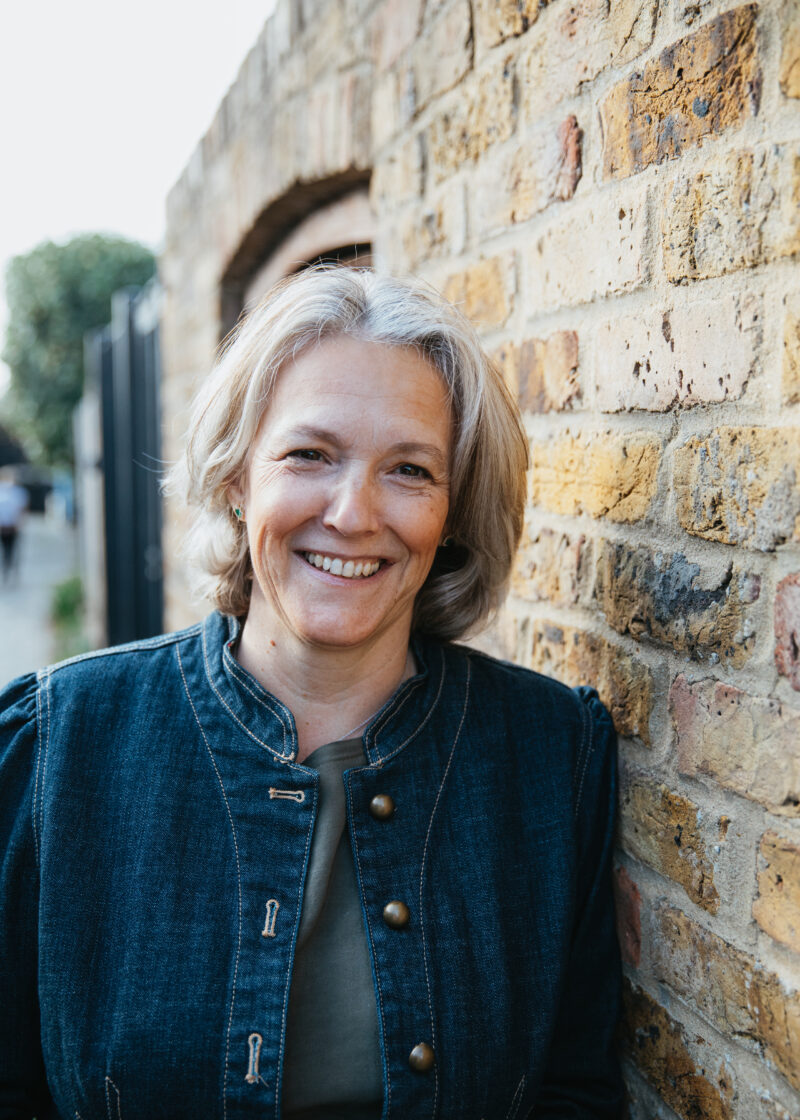
Frog Bikes
From kitchen table to the international stage, Shelley and Jerry Lawson have turned a fruitless search for quality children’s bikes into a fast-growing business that’s putting children and the planet at the centre of their product designs.
Keen cyclists, the Lawsons started Frog Bikes nearly eight years ago when they found it surprisingly difficult to find good quality lightweight bikes for their own children. They spotted a gap in the market and set about creating bikes specifically designed with a child’s unique anatomy in mind. Working with sports scientists at Brunel University they commissioned primary research to create child-specific geometry for their bike frames.
Revising the thinking behind children’s bike design, Shelley Lawson explains: “Our research team started with a specially designed rig, like a static bike, changing the dimensions and testing it with hundreds of children to find the perfect set-up for kids based on their inside leg and arm measurements. We measure our bikes by the rider’s inside leg measurement, which was a new approach for the industry. Before we started, children’s bikes were sold by age or wheel size, and that doesn’t guarantee it will be right for each child.”
The result is a range of bikes that are comfortable and efficient, and the aluminium frames make them lightweight and easier to start and stop. With features such as easy to reach brake levers, shorter cranks and a long seat post, the bikes provide room for growth and added comfort for kids of all abilities.
Since its humble beginnings on the Lawson’s kitchen table, Frog Bikes has gone from strength to strength with a head office in Ascot, Berkshire and a factory in Wales. Today, the company has 80 employees and sells its products through 1,500 independent bike stores in 56 countries, throughout Europe as well as the USA, Hong Kong and Australia. In fact, in 2018, Frog Bikes were recognised with the Queen’s Award for International Trade.
“Four years ago, we moved the manufacturing of our bikes into our own factory in Wales rather than the Far East,” says Shelley. “This has shortened our lead times, given us more control over quality and meant continued development of our bikes as R&D can work efficiently alongside manufacturing. Plus, it has always been important to us that we can manufacture our bikes in the UK and create jobs here.”
A further indication of the company’s achievements has been a series of high-profile partnerships. Shelley explains: “In 2014, Team Sky approached us and asked us to make their range of children’s bikes, which was a real honour and vindication of the quality of our bikes. More recently, we have collaborated with the iconic Tour de France™ to design a range of bright yellow bikes, which carry their logo.”
If this wasn’t enough, the company also aims to lead the way in the use of environmentally friendly materials. For instance, half of their bikes already have pedals that are made of 50% rice husks, which is a waste by-product. The ambition is to roll this out throughout the entire range, explore other innovative green materials, reduce carbon emissions and make their supply chain more circular.
Since 2018 the Thames Valley Berkshire Business Growth Hub has been providing advice to Frog Bike’s founders to enable them to further build upon their success and scale up their operations.
“When we first started on the Growth Hub’s ScaleUp Berkshire Programme, we were a little sceptical as we didn’t know what to expect,” says Shelley. “But their adviser listened more than talked and quickly came back to us with some proactive and valuable suggestions. The programme has saved us time, added value and opened doors.”
“We’ve been very impressed with the service from the Berkshire Growth Hub and the ScaleUp Berkshire Programme. For example, they have been extremely helpful in terms of helping us recruit a non-executive director, advising us on preparing for the EU Exit and helping us find quite niche component manufacturers. Our adviser has an extensive network of contacts and is great at keeping us updated on what support is available, particularly from government departments. There are things that would have been more difficult to achieve without their support. They have certainly been able to get us to the right people quicker and I find a personal introduction always works better.”
Alongside help from the Berkshire Growth Hub, Frog Bikes has also secured funding from Innovate UK to continue its research and innovation. “Having Innovate UK funding and contacts has enabled us to do more extensive ongoing research,” explains Shelley. “It has been transformative.”
Passion, people and the right support are certainly powering Frog Bikes to success despite a year of world-wide challenges. The Covid-19 pandemic has prompted people to become healthier and take up more outdoor activities, which has seen increased interest in cycling.
“2020 has been kind to the bike industry,” says Shelley. “There has been a surge in demand and we have even taken on new staff during this period, but we have also seen global supply chain challenges across our sector in the last few months.
“The pandemic has also shown it is possible to work in new ways and we have embraced this. With our office team mainly working from home, we’ve introduced online sessions and initiatives to keep staff physically and mentally well. For example, we have just launched a healthy living allowance for our teams, which can be used for things like a Fitbit or membership of a running club.”
“We want people to enjoy cycling – it’s a great way to exercise, socialise and it’s environmentally friendly. I still get so excited when I’m out and I see kids riding one of our bikes.”
“I feel proud of what we’ve achieved, but we always want to do better. The biggest thing we’ve learnt is the importance of putting structures and processes in place from the start because it’s a lot harder to retro-fit these. Plus, it is important to be flexible and ready to adapt to whatever happens.
“The advantage of being a small business is that you can be more flexible. We are trying to keep that mindset to make decisions quickly and react to changing situations. I believe the support we’ve had along the way has helped us deal with the current challenges caused by the coronavirus pandemic and has put us in a good position to tackle future challenges.”
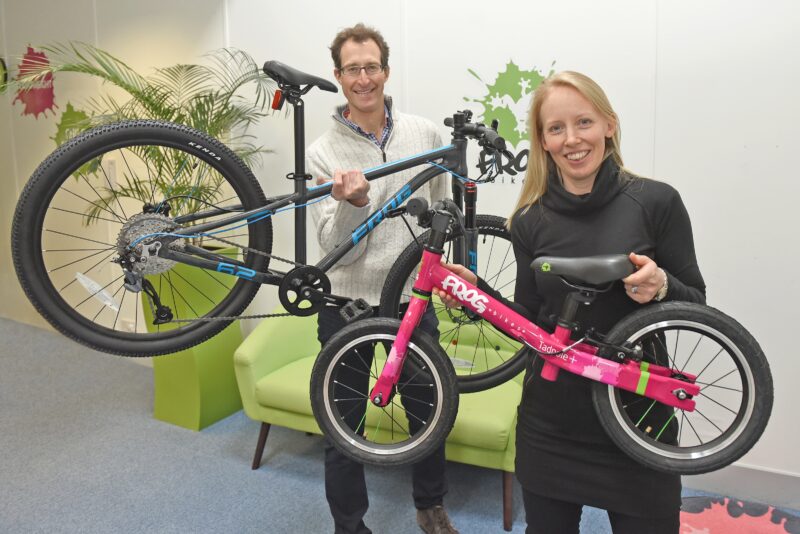
Fundamentals
It started with his father and a work colleague developing the technology in a shed. Today Jon Hiscock runs a 90-employee enterprise with a formidable reputation in the power industry. Swindon-based Fundamentals occupies a clearly defined niche in the area of automatic voltage control, with its customers being electricity distribution network operators (DNOs).
The year had started with a big plan, says Hiscock. “We had started to put a detailed five-year plan together; I am a great fan of Jim Collins’ Good to Great and this was the first leg of our longer-term journey to greatness. Then, whack, Covid.”
Although there were immediate concerns as projects were halted, orders resumed quickly. “If you are going to be in an industry in a pandemic then power is not a bad one,” says Hiscock, “as the lights have to stay on.”
Part of Fundamentals’ plan had been to raise finance – and Hiscock and his advisers were weighing up whether to use debt or equity or a mix. Here Covid opened up an unexpected option; and Fundamentals successfully applied for a £2m CBILs loan from Lloyds Bank. “We have yet to use it but it helped our confidence,” he says. “We know we can carry on delivering and don’t have to hold back. The CBILs loan could be the finance to help us ride through Covid and push through with our plan.”
The timing could not have been better. On the other side of world – in Perth, Australia – a key supplier had gone into administration. “We had to get hold of it to ensure security of supply,” says Hiscock, “and just as we were looking at it, the CBILs loan came through.” Rapid due diligence over Zoom followed, and Fundamentals was able to unite with SystemCORP Energy. “We have gained some amazing engineers.”
One of the major components of Fundamental’s five-year plan is to expand its international presence; at present, the UK accounts for about 90% of revenues. Aside from a fully-owned subsidiary in Australia, the company has a value-added reseller in the Middle East and is ambitious to build sales in Europe and South East Asia.
The move to zero carbon provides a tailwind for Fundamentals. “Our mission is to improve the health and performance of the grid,” explains Hiscock. “The UK’s national grid was designed in the 1950 and 1960s with big power stations generating power that flowed from the top through the network and down to the consumer. When the grid was designed, there was no concept of renewable energy, electric vehicles, or battery storage which we see today. Power flows are now uni-directional and the system becomes increasingly dynamic which introduces significant challenges for network operators. The ideal solution would be to build the grid again from scratch but that is preclusively expensive. We therefore have to adapt the existing grid to cope. On top of that is digital transformation. The grid has to be digitised but it’s the existing electro-mechanical kit that keeps the lights on. This is where Fundamentals has an important part to play in combining digital and analogue technology to help realise the smart grid.”
Finding the right talent and skills is one of the main challenges for the company. “The UK did lose its way as far as STEM education was concerned but I think we are getting back on track, and we do have a few apprentices. However, we have experienced difficulties in finding in the UK those experienced, technically skilled people who can hit the ground running.”
Hiscock is a firm advocate of the value of peer networking.
“It is lonely at the top and there are conversations that you can’t have with management.” He is a member of Vistage, for which he regularly sets aside a day each month. “It has helped me tremendously,” he says.
Fundamentals is part of the Wiltshire-based Inspire network: “I have always wanted my wider team to have something like I have enjoyed with Vistage. Inspire gives that; it means my team have the opportunity to get out and think about different things.” And through Inspire, Hiscock was also introduced to the Goldman Sachs 10,000 Small Businesses UK programme.
“Overall this year, we are down on budget but not badly,” he says. “If you had told me we would achieve that at the beginning of the outbreak, I would have taken it.”
Beyond Covid, Hiscock is optimistic. “We have seen that working from home and using more digital ways of working is not a problem. We are in a brilliant place in terms of morale. We’re anticipating a couple of big projects landing, and we will pursue our international agenda. We are going heavy on R&D in order to expand our product portfolio. And this year has led me to conclude that it’s OK for us to slow down a bit.”
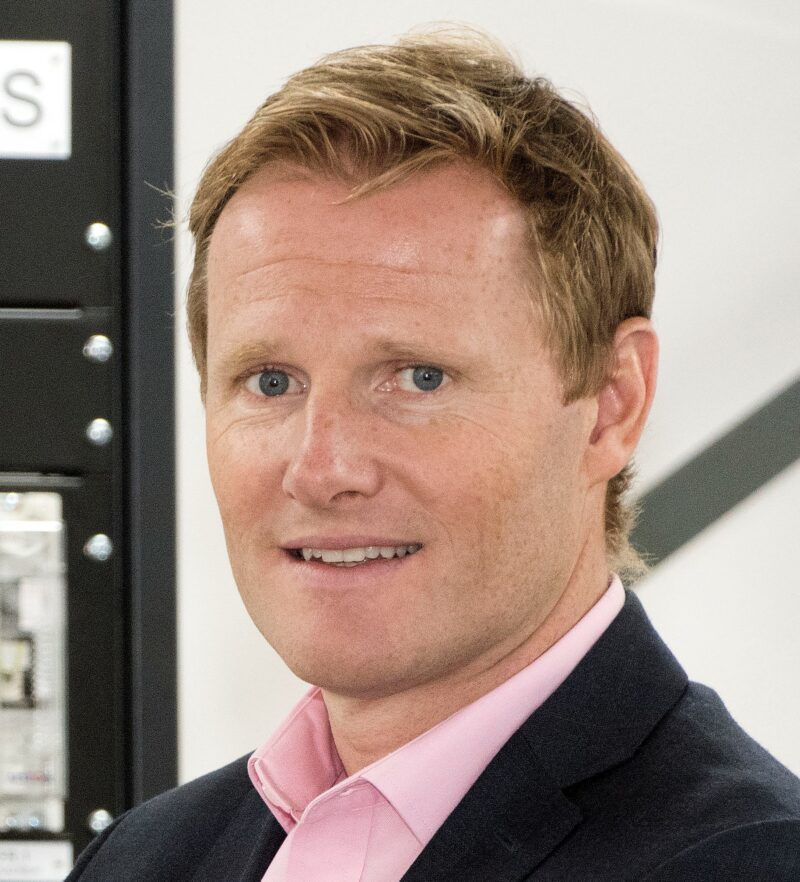
FutureDJs
Austen and Scott Smart started FutureDJs in 2016 when they saw that the AQA exam board’s decision to recognise DJ decks as instruments could open up a new future for music in schools. And the brothers, both of whom are experienced DJs.
Our essential intent was to give young people the chance to enjoy music education. For the first three years, it was a conventional model of teaching – even if the music itself was novel. Future DJs would install decks into a school and one of its network of tutors would teach the techniques and music from its study programme. The business was growing but was operationally demanding, says Austen.
In the spring of 2019, FutureDJs started a fundraising round. In the late summer of 2019, Austen went on the Goldman Sachs 10,000 Small Businesses UK programme. Being on it while running the business and raising fresh finance was tough – but it changed everything.
While on a visit to the US, Scott had seen an immersive technology platform that he thought could be used for remote learning of music. Austen incorporated the concept into his growth plan presentation on the programme. The reaction was startling; fellow participants said that they wanted to invest.
By the time the Covid pandemic had struck, FutureDJs had raised £600,000. “I’m grateful every day to have had that money in the bank.” The brothers were in a hurry; a good friend (and CEO of a large Italian group of companies) based in Italy was regularly warning them about the impact of the coronavirus. Before lockdown, FutureDJs stopped its entire schools operation.
The pivot to being an online teacher took place during lockdown, when the Smarts and a core team set to work on building the company’s future. In their premises in Knutsford – a building that had once housed General Patton – a studio was created (with a smaller prototype version being built next door for students to try). Resources had to be found on eBay.
The Virtuoso classroom, built on top of the core X2O Virtual Classroom, provides an experience similar to that of in-classroom participants, enabling up to 120 remote participants to appear at one time on avatar displays with directional audio and dedicated multi-cameras. “The front end user interface is very intuitive and interactive, and it allows the presenter to be themselves,” says Austen. “They can walk around and hold the room, not sit in front of a camera.” Students log in to appear on the screen wall and can see themselves. “It feels like a real live event, with powerful collaboration tools,” he adds.
The business model has evolved as rapidly.
At present, five million young people in the UK are teaching themselves how to make electronic music – that is the market. Teaching remains the primary revenue stream but instead of sending tutors around schools, classes of 32 students can be taught at a time. And in the majority of cases, the company now has a direct relationship with their parents who pay on a course-by-course basis. (Work to introduce a subscription model is well under way.) And, of course, it means that Future DJs can also teach adults; “whoever wants to learn, can do so.”
The investors’ cash also enabled the Smarts to acquire an examination board in the summer; “it had 20 years of syllabi in all modern instruments so this has short-cut years of creating our own.”
Future DJs has also built a partnership with Spotify to create music education packs that can be provided directly to schools. FutureDJs provides the training for teachers. “Spotify has a music production programme called Soundtrap but many teachers didn’t know how to use it – how many teachers can stand in front of a load of kids and talk about grime? – so these packs enable them to feel confident.” Recently, the partnership has progressed as FutureDJs is taking over direct sales of the Spotify music production programme (Soundtrap) in the UK.
This level of corporate collaboration has taken time – and experience. Two of Future DJs’ non-executive directors provided technology licensing experience and nous, and, says Smart, “we took several learnings from the Goldman Sachs programme back into our meetings with Spotify and it really helped.”
There is a third revenue stream. Having built the facility, FutureDJs is also hiring the space to corporates and has already won several contracts. “Hiring out the Virtuoso studio is good money and reduces downtime but the ability to make music education accessible to everyone is our central purpose,” says Austen.
During this time, the fundraising continued – and the company has hit its £1m target. “We have been able to raise significant sums of money on Zoom. We had made several trips to Europe and the US without securing backers but we have been able to stand here in Knutsford and raise funds.”
The focus is now on recruiting talent – “we are looking to bring in senior technical talent and creative video skills right now” – and planning is under way to build a second Virtuoso classroom in Amsterdam. Ultimately, the Smarts want to build ten classrooms around the world. At the same time, the company has been awarded two grants – one from the Arts Council and a Sustainable Innovation grant – to work on small scale music hubs around the UK.
“It’s been an incredible year and the Goldman Sachs programme has informed so much of its shape and direction,” says Smart. “I get goosebumps just thinking about it.” And their goals are clear and ambitious for 2021 – including gaining 10,000 subscribers, increasing revenues by 500%, and teaching a total of 500,000 students across all programmes and media. At a time when musicians, DJs, artists and music teachers have had their world turned upside down by the Covid pandemic, FutureDJs sets an inspiring example. “We want to become the number one music education company in the world,” he says, “and I just wish we could get there faster.”

Gousto
It was already shaping up to be a banner year for recipe box company Gousto. The eight-year old business had just reached the significant milestone of recording its maiden profits. It had concluded a £30m round of funding. The pace of growth was already strong, says CEO and founder Timo Boldt, but then the Covid pandemic accelerated that.
“As Covid unfolded, we faced three big questions,” says Boldt. “How do we ensure employees are safe? How do we satisfy our customers, as many of them will now be using our service as a necessity rather than a nice-to-have? And how do we increase capacity, to get more boxes out of the factories?
“It’s a horrible situation and if I had a magic wand I would make it go away, but I have been incredibly proud of the way in which our team reacted.”
Productivity and capacity ramped up considerably. Customer satisfaction went to an all-time industry high. The team built and launched a not-for-profit Food Finder platform to tell shoppers which small businesses were offering food delivery services in their area during lockdown. In the first half of the year, Gousto’s sales outstripped 2019’s full year performance.
The company has hired approximately 200 people since lockdown, bringing employee numbers up to 1,000. But onboarding new recruits and giving them both a sense of belonging and a sense of urgency, has been a challenge. From the provision of mental health support to virtual yoga sessions, from Boldt’s fortnightly all-company pep talks to refining monthly engagement surveys, “It’s definitely not been easy but we are trying to get it right,” he says.
The intensity of this execution challenge is going to remain high. On current projections, Gousto will double its employee numbers within 18 months. “There are not many companies growing 100 per cent year-on-year at our scale. You name the skill you have, and we probably have a job that matches that skill. Operations and technology are the two areas that are growing the fastest.”
For Boldt, how to foster a growth mindset at scale is a major management challenge. The supply of talent is critical to meeting that challenge. “The required skills are changing so fast that people need to continuously improve,” he says, “so we must move to models of lifelong learning.” One idea, he suggests, could be more training academies for people to switch jobs later in their career to become software engineers. Another challenge to overcome is the pipeline of female STEM graduates which is currently “not large enough.”
Having an appetite for relentless learning is an example which Boldt sets himself. After completing a 12-month diploma in coaching last year, he has joined the board of BGL (owners of Compare the Market) as a non-executive director. “It’s an incredible opportunity to work with one of the UK’s biggest consumer brands on their customer focus and digital transformation,” he says. When it comes to benchmarking its performance, Gousto rates itself against tech giants such as Netflix, Spotify and Microsoft.
“Gousto went into the crisis with a strong proposition”, he says. “We offer the lowest price point, the greatest choice of recipes and the shortest lead times for delivery. Over this year we have seen our customers make more frequent orders and for more portions. They are relying more heavily on Gousto.”
To date, Gousto has raised £130m with early investors such as BGF and MMC Ventures investing in multiple rounds. The latest round was in April 2020, raising £32m. “Our investors have been hugely supportive”, says Boldt. “They have bought into the vision and the team and have confidence in our ability to execute.” Gousto will continue to invest into areas such as AI to give customers more personalised recipe recommendations, as well as further automation of its logistics operations.
The impact of Covid has led to Gousto significantly enlarging its vision. It took 20 years for online groceries to achieve a seven per cent market share; this year it is 14 per cent. That’s 20 years of secular trend compressed into a few months.
Today Gousto is selling over five million meals per month but, says Boldt, this is a “rounding error” when one billion meals are eaten on a weekly basis in the UK. Over the next two years, he says, Gousto can scale by “an order of magnitude over where we are today, not just just by 40 per cent a year.” He says that Gousto is aligned with “all four of the biggest trends in the grocery market – online, convenience, health and sustainability. Ultimately, our vision is to be the most loved way to eat dinner.”

Iceotope
Iceotope was founded in 2012 and is based in the AMP Technology Centre in Sheffield. Its liquid cooling solutions remove the need for fans and air-cooling infrastructure from IT systems – which in turn reduces energy and water consumption, and significant cost reductions in the design, build and operation of data centres.
There is nothing new in making hot things cold by using liquids, says its CEO David Craig, but up until recently, its re-emergence in IT has long been ‘the next big thing’.
Now, though, there is a pressing need for change. Computer chips are getting hotter and it’s beyond the ability of air to cool them. There are environmental concerns about the vast amounts of energy and water being used to cool the growing number of data centres. And while huge amounts of processing is taking place in the cloud, computing power is increasingly required elsewhere – from agriculture and factories to autonomous vehicles – in places and climates where fans and air cooling isn’t suitable.
Iceotope’s technology, which Craig describes as a unique approach taking the best of many different approaches and adding their own inventiveness, is set to play a key role in effecting that change. Its solution uses up to 80% less cooling power and 97% less water.
But for a small, innovative company in Sheffield to access the huge, mature and conservative computer industry is a significant challenge.
“We have set out to enable our potential customers to be comfortable with the technology and remove barriers to entry” he says. “Our platform has to look, feel and fit inside their world. You can’t preach to customers; you have to work with them and closely within them.”
The strategic approach is to license its technology and then “to bag a few big elephants.”
The elephants are the internet giants or the ‘hyperscalers’. “They represent about 40% of the market and are massively vertically integrated; they design their own servers and data centres,” says Craig.
There are other elephants – the tier one equipment manufacturers that include the household names in PC manufacture and design. Here Iceotope is fostering an ecosystem among the advisers, designers, manufacturers’ approved vendors and key infrastructure leaders such as Schneider Electric. “We are selling a global technology to global technology companies, so we have to be global and capable of supporting them everywhere.”
Elephant bagging is complex and risky but highly focused – and the approach is starting to bear fruit. Craig says that Iceotope has good relationships with three of the top five hyperscalers, with one being “really deep.” Soon he says, some of the major manufacturers will be bringing products to market using Iceotope’s technology.
From a position five years ago when revenues were, in Craig’s words, “negligible,” Iceotope is now moving towards the critical point of exponential growth – when the elephants start to deploy Iceotope’s technology at scale. “We could achieve between two to four times revenue growth next year but we see 2023/24 as the year in which the proverbial hockey stick starts to show on the graphs.”
For the past five years, Iceotope has been mainly equity financed (its principal backers are Ombu Group, Aster Capital and Edwards Investments) and has had significant success with grants from Innovate UK and £5m of funding from the Horizon 2020 project.
But while it has not used debt finance, it has received strong support from Barclays. Iceotope’s CFO Stephan Hollingshead has been on Barclays Scale Up UK programme at Cambridge Judge Business School. Craig is a fellow on Barclays’ Unreasonable Impact programme, an international network for leaders of ventures which are addressing urgent societal and/or environmental challenges with scalable solutions, and which themselves have the potential to create at least 500 jobs over the next five years. “It has given us incredible access to the bank’s senior corporate management,” says Craig.
Last year, Craig flew around the world seven times developing those relationships. As the Covid pandemic hit, racking up those air miles have paid off. “We would have struggled this year had we not already put in the effort to open doors,” says Craig. His plans to “network like crazy” in the US may have been delayed by a year but he will be back on the plane as soon as possible.
Iceotope’s commercial centre of gravity will inevitably shift towards the US and other key international markets, he says. “Currently, our core relationships are US-centric; the key industry decision makers are in the USA.
However, he adds, the company is committed to Sheffield as its R&D centre. “We have got phenomenal capability in the city, with great technology and a superb team – over half our engineering team are on our patents. I am super proud of that. It is an amazing place to hire and grow amazingly good engineers.”
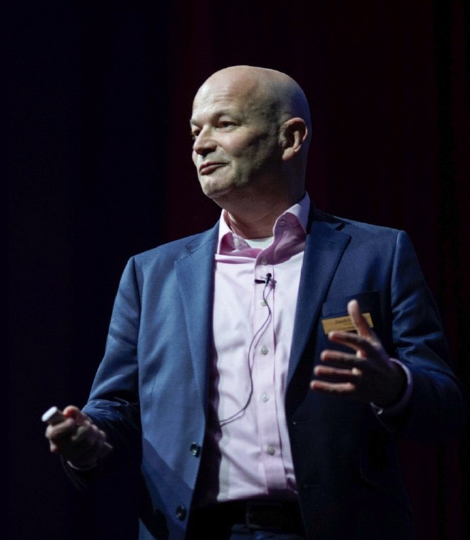
Juggle
Romanie Thomas is set on changing the business leadership landscape.
After ten years in the headhunting business, she was frustrated: “Our clients and stakeholders were predominantly men; the candidates we were placing were men; the internal peers at director level were men. And I thought, hang on a second, I’m pretty sure that I joined the workforce with lots of great women.”
Seeing flexibility in the workplace at the heart of the solution, she established Juggle in central London in 2017. “Normalising flexible working is the big route to solving the gender gap in leadership,” she says. The firm’s focus is placing mid-senior level professionals into flexible work roles; “it is a tech proposition so it can be the go-to destination as the world moves towards a more flexible workforce.”
Thomas says that Juggle measures their success by how many women it places into these flexible roles. “Success is between 50-70%,” she says, “as below that goes against our mission, while above that figure shows we aren’t placing enough men – which also goes against our mission.”
For scaleup businesses, recruitment based around flexible working provides speed and quality, she argues. One of the barriers to growth is that companies can’t hire high quality people fast enough because they are rooted to the old ways of hiring and working, such as 9-5 jobs and onerous employment contracts. “But scaleups depend on performance and people being able to add value very quickly. This is where flexible workers are perfectly incentivised to perform. A scaleup will only be as successful as the people they hire – and the best quality people want flexibility.”
Not only that, she argues, flexibility leads to higher performance. “It encourages 20% more planning in a business but it also gives good people freedom, ownership and accountability.”
However, the Covid pandemic initially had a big impact on Juggle; flexible workers felt the immediate brunt of corporate decisions to freeze or cut hiring. Since then, the conversation has changed, she says. “Up until this point we had been trying to get the market to adopt what we were doing – but now many companies are seeing that flexibility is the solution, our numbers are well back to pre-Covid levels.”
Post-Covid, will there be a backlash against flexible working? Thomas acknowledges that she is “at the pointy end of wanting things to change” and that there are many good reasons why people will want to work together – “but it won’t be on the grounds of speed, efficiency and performance.” Large organisations with the operational machinery have embraced the change, she notes, and small companies have adapted. “The companies in between are those who struggle with the transition, and for many of them flexibility can still feel like a weight not an advantage.”
For a small, growing business, Juggle’s experience of government support this year has been “nothing but positive.”
An interim round of funding was raised, using the Future Fund. Within weeks of Juggle’s submission, the cash was in the bank. It was a round that provided classic bridge finance; “it gave our investors the confidence that we would have enough capital for us to do what we needed to do.” It was a positive experience that, she says, was shared by others in her network of tech founders. “Nobody I know has had a poor experience; it was really well executed.”
In addition, the firm was awarded a £50,000 Innovate UK grant to fund a longer-term project on how to use data to improve referencing in the recruitment process. “It’s not currently fit for purpose, but it needs to be in order to support the remote working world,” says Thomas. “It’s a project that we would not have had on our roadmap had we not been given the grant.”
An R&D tax credit application was sorted and approved within five weeks.
“These measures helped to keep us successful and in a position to double down on future opportunities, so we’re very grateful to have had this support.”
Over the next two to three years, Juggle will continue to focus on the UK market – “it is open, receptive and large.” Traditional recruitment firms, she argues, “will have to kill their old business model while we are reinventing what professional hiring looks like.”
Juggle harbours medium-term ambitions to move into the US market. It’s one reason why she participated on this year’s SVC2UK Female Founders virtual mission to the US. “Of course, we all would have loved to visit the US but it has been a brilliant experience,” she says. “It was well-structured and organised, and it has over-delivered on our strategic aims.” Another key reason for participating was that it fitted with her fundraising ambitions. “We want to build a transformational tech company and that almost certainly includes significant investment from the US,” she says.

Loop Technology
Dorchester-based industrial automation specialists Loop Technology have experienced year on year large scale growth and consistently high demand to deliver state-of-the-art systems to customers within the high value manufacturing sectors.
At the heart of its growth is Loop’s capability in composites manufacturing, principally within the aerospace industry. Loop has been supporting a number of leading aerospace companies to create and develop systems to keep up with the growing demand for composites. “The aerospace sector has high standards but the machinery wasn’t there to make components at the necessary scale, rate or accuracy,” explains Loop Technology’s director Alun Reece. After a period of intense R&D, Loop’s advancements have paid off, and the company secured a number of patents, with several more nearing completion.
The company was made aware of the Innovate UK Scaleup Programme through an introduction from Dorset Growth Hub towards the end of 2019.
“We had not heard of the programme before but it made real sense to us,” says Samantha. “We were growing so fast that we were running out of expertise. You can grow to a certain level based on common sense but to take it to £25m is a different order of magnitude. How to grow a business is not knowledge that you have naturally – it is something that you have to study.”
The timing was fortuitous and introduced significant improvements to the company’s internal systems and manufacturing processes. “The Scaleup programme helped us to step back and take stock,” says Alun. “We saw where we needed to put structures in place in order to help our future growth. We needed that help; we are experts in engineering, not in growing a business.”
He adds that the peer network of the programme was an important aspect. “Speaking to people who have the same kind of issues, or who have resolved those issues, is a goldmine of information. Meeting people facing similar challenges is a critical part of scaling up.”
The programme also led the Reece’s to contemplate external finance for the first time, in order to fully exploit the potential of their market.
When the Covid pandemic arrived, Loop Technology’s aerospace work effectively stopped overnight. Anticipated projects didn’t come in. Existing projects were paused and then cancelled, or just cancelled straightaway.
The company, run by husband and wife team Alun and Samantha Reece and which started at their home back in 1998, took on their first employee in 2005. Prior to Covid, the business was recruiting left, right and centre, for mechanical and software designers as well as shop floor and office support.
“At the start of the year, the order book looked rosy,” says Alun Reece. “We thought we would be on for another record year.”
Fortunately, orders secured at the end of 2019 have kept Loop busy. “It has been a tough period but we have weathered it.”
The company remains strong and is applying its advanced automation capabilities into other sectors.
“We supply capital equipment, which is a really simple thing to stop buying when money gets tight,” says Alun. “Confidence is not going to come back to any large degree in the aerospace sector soon, so we are looking at how we can best utilise our extensive vision and automation capabilities to ease the pain points within logistics, medical devices and the packaging and labelling sectors.
The lessons learned from the Innovate UK Scaleup Programme remain firmly in place. Loop Technology is going ahead with its search for external funding. “We may be seeing a temporary dip within the aerospace sector at the moment but there will be an upturn in demand at some point” say Samantha “and when it comes, we are ready, with the right processes and structures in place to meet it”.
“We have revised our projection model and pitch deck to reflect the impact of Covid but the market has not gone away,” says Alun. “The future of the industry will be based on even greater use of lightweight composite materials, so the move towards greener air travel is good for us.”
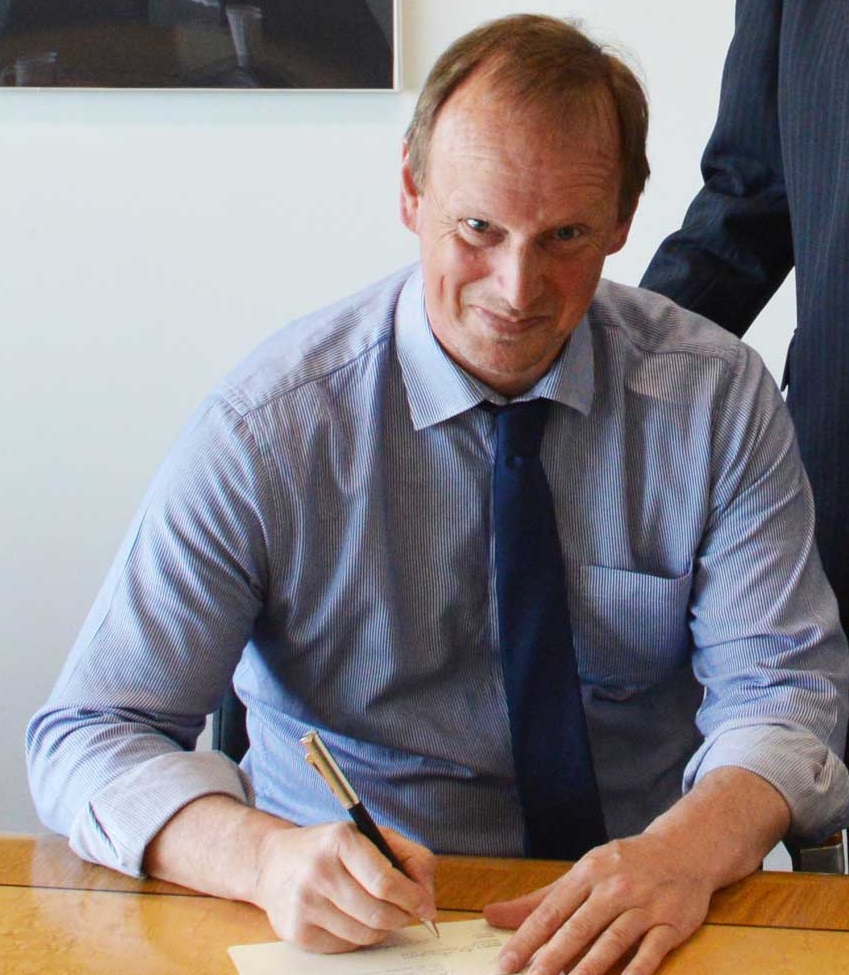
Neueda
In August, the software services company Neueda announced plans to double its payroll by creating 230 jobs in Belfast in a £20m investment – the biggest in Northern Ireland since lockdown.
It was a punchy public statement of intent from the £32m-turnover business that had been a well-kept secret for much of 14 year history. “We don’t do things by half,” laughs CEO Paddy O’Hagan. “When so many people are concerned about their jobs and livelihoods we had to judge when to come out with this news – but it was important to show that growing businesses such as ours are in good shape and not standing still.”
It’s been an accelerating journey since 2009 when Neueda employed just nine people. “Ten years ago, our growth plan wasn’t extravagant; we just built up business with our existing customers and began to add good people when we could – and attracting good people has sustained our growth,” says O’Hagan.
Neueda, he says, has rarely lost customers. Its biggest customer is the Northern Ireland Department of Agriculture – a relationship that has existed for more than ten years – where currently Neueda is helping to run the department’s digital transformation.
Now the aim is to significantly scale its customer base outside Northern Ireland, says O’Hagan. “We need to get better at adding new customers – that is our growth opportunity. We want our growth to be across the board. We have a spread of customers in the public and private sectors and in the capital markets and we want to retain that balance.
At present, 70% of Neueda’s revenues comes from Northern Ireland. “That’s good but not sustainable, so we need to expand our international footprint. There is a whole world to expand into. Our capital markets business is already predominantly outside Northern Ireland.”
In its earlier years, Neueda had relied heavily on contractors. Now the balance has shifted. Its overall headcount of 400 now consists of 230 full-time employees. “There’s always a role for using experienced contractors but we really want to invest in our staff and we will continue to grow the number of full-time employees.”
The company has recently restructured around four areas of capability – digital transformation, trading technology, data and analytics, and cloud solutions – rather than industry sectors. “Not only does it simplify the sales message, it focuses us on how we have to build out our skills base.”
It is the impact on skills that most concerns O’Hagan about Brexit. “We rely on an open labour market. The skills we require are not available in sufficient numbers in Northern Ireland as it is a highly competitive market for IT and technology skills. So the only way we can be successful is to increase the size of that labour market. We have 17 nationalities working here and they are attracted by Belfast being a good and affordable place to work. Our big fear is how much more difficult it will be for us to hire people internationally and relocate them here.”
The company is spreading its bets. It has a development centre in Malaga, staffed by a cadre of long-standing Spanish employees who moved back to open it. Earlier this year Neueda’s sister company Neueda Technologies announced plans to create 200 jobs over four years in a new software engineering hub over the border in Athlone.
Invest NI supports a reskilling programme run by Neueda, taking people from different careers through an intensive 12-week programme on computer science skills. “Given the competition for talent here, it’s good to recruit from non-obvious places,” says O’Hagan.
Throughout the past decade, Neueda has worked closely with Invest Northern Ireland – and not just for job support. “Invest NI have adapted to our needs over the years and shown great creativity and nimbleness with their support packages,” says O’Hagan. “By helping at the right time, with the right support, they have been key to our growth.”
The interventions have been timely. Investment in leadership development plays a central role in Neueda’s growth strategy but, O’Hagan smiles, “there was a time when we thought leadership development was for everybody else. But we went on Invest NI’s Leadership for Growth programme and it was phenomenal.”
As a business that is focused on digital transformation, it’s not surprising that the transition to remote working did not present undue problems to Neueda. “We were pretty well prepared although a global pandemic wasn’t on our risk register,” says O’Hagan. While customer decision-making was delayed, “ultimately Covid has forced attention onto the business issues that, thankfully, are our strengths.”
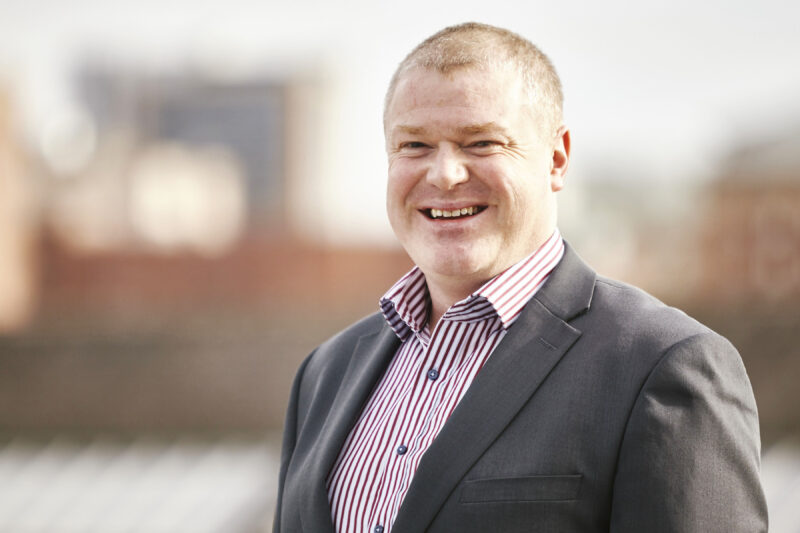
Olivehorse
Supply chain management specialists Olivehorse first rode out in 2012. Since then, the payroll of this Coventry-based consultancy has grown to nearly 50 and its client base features global corporations and giant household brands.
“We live in the gap between the software that promises greater profitability – and the profits themselves,” says co-founder and managing director Fred Akuffo. “We help organisations use the software that they already have in order to optimise their inventory so that they can respond better to market demand. We can be nimble and deliver ideas quickly, while serving large and complex supply chains.”
Given the presence of juggernaut consultancy firms in this field, nimbleness has been a watchword. “Not many consultancies survive long in this business,” says Akuffo, who is an alumnus of Cranfield University and KPMG. “They tend to be bought up or fall apart pretty quickly.”
This year, the initial impact of Covid was tough on Olivehorse. Clients stopped projects and froze expenditure. However, as the firm had been running distance projects for some time, so was soon able to make customers comfortable with running virtual workshops and creating virtual project rooms.
The global pandemic has put corporate supply chains under immense pressure. Corporate planners couldn’t go back to their desks to pull out data to then work out how to respond to changing forecasts. They had to make the right decisions much faster. And they needed to know how. As a result, it has created greater awareness for supply chain planning services and there has been growing interest in Olivehorse’s expertise of building resilience and agility into supply chains.
A central part of the Olivehorse offer is Integrated Business Planning (IBP). “It’s a very powerful way of operating,” says Akuffo, as it brings together sales and operations planning with financial management, connecting the boardroom with the shop floor.
For the past few years, the firm had invested heavily in SAP’s software and training to deliver IBP. “It has been costly but we anticipated that the market would move towards cloud-enabled IBP but that move was not happening quickly until Covid. Now many companies have become believers and interest in IBP has been accelerated by Covid. It has moved supply chain up the corporate agenda, bringing the need for agility and resilience into sharp focus and integrated business planning is a powerful enabler.”
After the Covid spring hiatus, the firm is back close to the targets of its annual operating plan. The qualified deal pipeline is full. The firm is on tender shortlists with the behemoths of the consulting world. And Akuffo is looking forward to growth in 2021.
In the UK, the firm is set to become a Value Added Reseller for SAP, which will allow it to sell its software to mid-sized corporates and secure the recurring software subscription revenues. It’s a move that will take the firm away from being a traditional consultancy business. “With a software relationship and therefore a service relationship, we can lock into long term relationships with our clients. It’s very much part of our vision to dominate this part of the UK market in supply chain planning.”
Its international expansion is client-led. The firm has started an office in South Africa, initially to service the Africa telecoms giant Vodacom but also to access new customers in the region. Akuffo plans to follow the same strategy in France and eventually in the Netherlands. “There’s plenty of potential for little Olivehorses to pop up around the world,” he laughs.
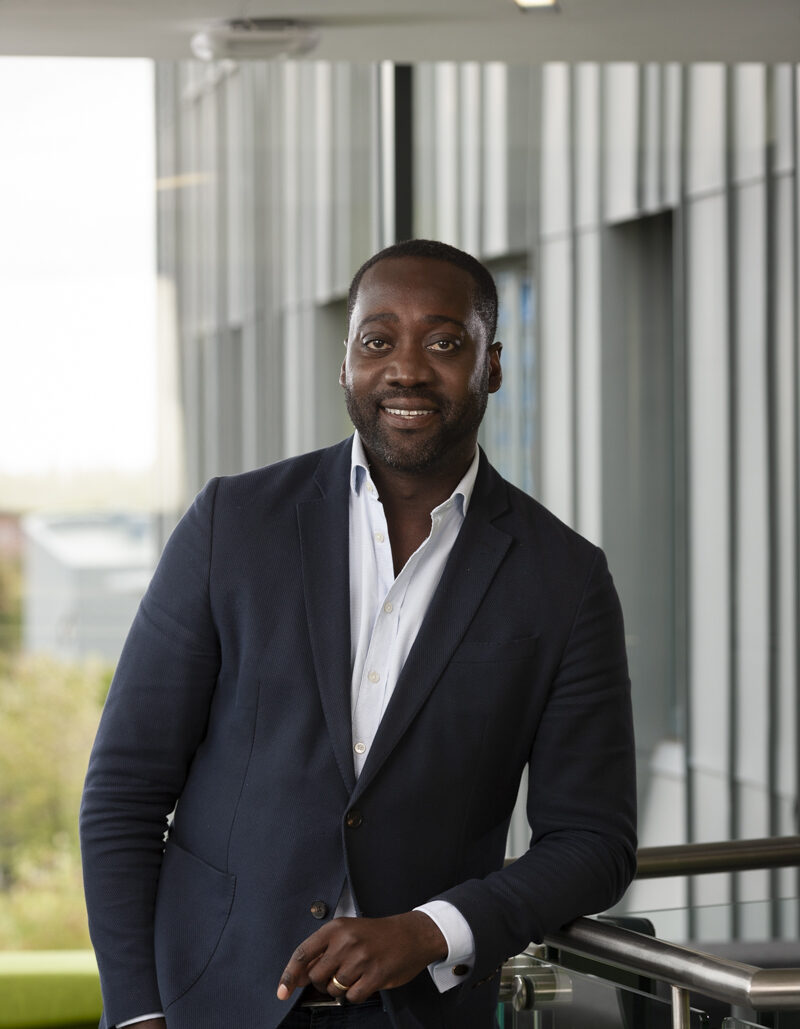
OnBuy
OnBuy may be into its third consecutive year of 600% sales growth, but for Cas Paton, founder and CEO of the Poole-based online marketplace, this is just the beginning. “Next year is when we really begin,” says the 36-year-old entrepreneur.
Launched in 2016, the marketplace has ambitions to secure up to five per cent of the £84bn UK eCommerce market in the next three years – not to mention, it’s about to embark on a worldwide scale up into more than 140 countries by 2023.
It does not hold or distribute any goods, so it doesn’t require bricks and mortar and can scale rapidly without the usual hurdles faced by businesses. It’s not like eBay: all the sellers on OnBuy are businesses. “We don’t compete with retailers, so we get great deals from them; with a single registration, customers can buy what they need, when they need it, from one secure platform. We are almost like an intermediary and we provide a layer of protection to both sides.”
So OnBuy measures its growth by GMV – gross merchandise value – which is the total amount of sales conducted on its platform. The revenue, of course, is the retailer’s revenue; OnBuy earns a commission from each transaction. As part of its fair, transparent approach, OnBuy charges competitive sales fees to better benefit the retailer. It’s the GMV that provides the dizzying numbers: since OnBuy’s launch four years ago, GMV has grown 24,000 per cent. In September 2019, for example, £750,000 of goods was sold on the OnBuy platform; this year it was £5.4m.
But the marketplace business model is tough to launch. Open your doors on day one and you are faced with a massive conundrum – sellers can’t see any buyers, while buyers can’t see anything from sellers.
It is an incredibly tricky job to attract either buyers or sellers to come to an empty marketplace but once – or if – they do, critical mass builds rapidly. Paton believes that this critical mass was achieved in April 2020. Brands such as Unilever, P&G, ao.com, Kimberly Clark and other high street names have joined the platform – in September, OnBuy increased its seller base by ten per cent.
“The way for us to grow is through partnership,” he says. “We are starting a fulfilment network in Europe with many of the world’s biggest logistics companies; so if a seller is gaining traction in France and wants to move products closer to French consumers, they can select a shipper and reduce delivery times, which in turn improves their sales conversion rates. By creating a large retail network through partnership, we can scale ridiculously quickly – and much faster than anything that requires physical infrastructure.”
With 30m product listings in the UK, Paton is now eager to begin expanding internationally. “We expect to be able to penetrate countries super quickly,” he says. “When OnBuy launches into France, the site will already have 1.9m products available for sale.”
The impact of Covid on OnBuy was rather like a fast car bouncing over a speed bump.
“There was an initial negative impact and we lost retailers but after about nine days we saw consumer habits changing and everybody started to buy things like home exercise equipment and health supplements. Sales went crazy for a while.
“Covid has brought a different way of shopping to the planet. It has been the catalyst of eCommerce, as well as making people hesitant about going into shops. I think the high street will remain, but it will change shape dramatically.”
Next year, the workforce looks set to double to 100. The company has just recently started to develop a relationship with nearby Bournemouth University, but Paton feels that locally there has been “a bit of disbelief” about the business. “Our rate of growth has woken people up to our being here. We did get a very helpful grant from Dorset Growth Hub in our infancy but the fact of the matter is that Dorset is a great place to live but not where tech companies typically choose to set up – London is the go-to. It’s been a rewarding challenge to create the world’s fastest-growing marketplace from this corner of England.”
Among the new recruits, OnBuy plans to take 12 Kickstarter apprentices into its marketing department.
“We were planning to take on apprenticeships in 2021 after our next fundraising round, as we had to factor the internal costs of training as well as the increase in headcount. But the Kickstarter scheme expedites this development and so we can bring this forward. I’m really pleased; it makes a good deal of sense as it is government support to help us provide experience and employability. I think the Kickstarter scheme will be extremely advantageous to the economy for the longer term.”

SHE Software
Founded in 1995, East Kilbride-based SHE Software specialises in environmental, health & safety (EHS) software. But the company only started to scale after Matthew Elson bought the business in 2011.
A seasoned corporate executive, who has served as CEO of ESR Technology and as Managing Director of Atkins Management Consulting division, Elson had been on the look-out for a company to acquire. “At the time, the business was small, troubled and flatlining,” he says, “but it was in a good market, with a bunch of customers and a technology that had got product market fit.”
It was ripe for turnaround. After two years of stabilisation and three years of bootstrapped growth – Elson became full time CEO in 2014 – turnover had risen from £500k to £3.5m.
At that point, Elson sought external investment from Northern Venture Capital Trust and started to expand internationally. And SHE Software hasn’t looked back; achieving over 40% CAGR over the past six years.
During 2019, it secured more than 80 new customers and an increase of 54% in orders. Its client base now numbers more than 300 organisations.
Globally, the market for EHS is “super fragmented,” says Elson. Global spending on EHS software is expected to reach $1.9bn in 2024. Yet in the corporate mid-market – where SHE Software is focused – there is no competitor of any scale. “It is a greenfield market,” he says, “most of the people buying our solution are either replacing pen and paper or an Excel spreadsheet. The commercial penetration of EHS software into the mid-market is 20% or less and that’s why it is a big opportunity. Globally, we are already number two in that space. Customers are hungry for the intelligence driven insights our solution provides.”
Of course, the Covid pandemic has pushed health and safety up the agenda and there are many aspects of SHE’s software that are currently proving invaluable to customers – from infection tracking to risk assessments for returning to workplaces. But if there are tailwinds, the general economic disruption has been a headwind. “It’s not been an easy environment,” says Elson, “as it has been tough for potential customers to take decisions. We have a good pipeline and are doing pretty well in the circumstances but you can’t under-estimate just how tough it is to close a sale.”
While SHE Software has a presence in Australia and New Zealand, central to its international expansion is North America. (A major financing round this year, led by Frog Capital, has provided the firepower.)
The company made its first step by hiring a Vice President for Talent in Chicago in 2018. “Getting the right mix of talent in place was the key to making it successful,” says Elson. “I wanted our North America business to be headed up by Americans but it also had to be part of SHE Software.” Today, SHE has 18 staff in the US, half of them based in Chicago and the other half home-based. Tellingly, three out of the five senior leadership team are based in the US.
Within two years, Elson expects new business sales in the US to outpace the UK. “The Covid situation combined with the Presidential election has made the North American market quite tricky but I think that after Christmas the US will surge forward again,” he says.
The international scaling of SHE Software is accelerating an interesting transition in the company. It is proudly Scottish – its origins lie in what was a major Scottish engineering company, Motherwell Bridge. Forty per cent of its staff are based in East Kilbride. The company has enjoyed significant grant funding support and sponsorship from Scottish Enterprise. Even at its current size, SHE Software is one of the nation’s largest B2B SaaS companies.
How it transforms into a larger, more complex international company while retaining its original energy and values is “a classic scaleup challenge,” says Elson.
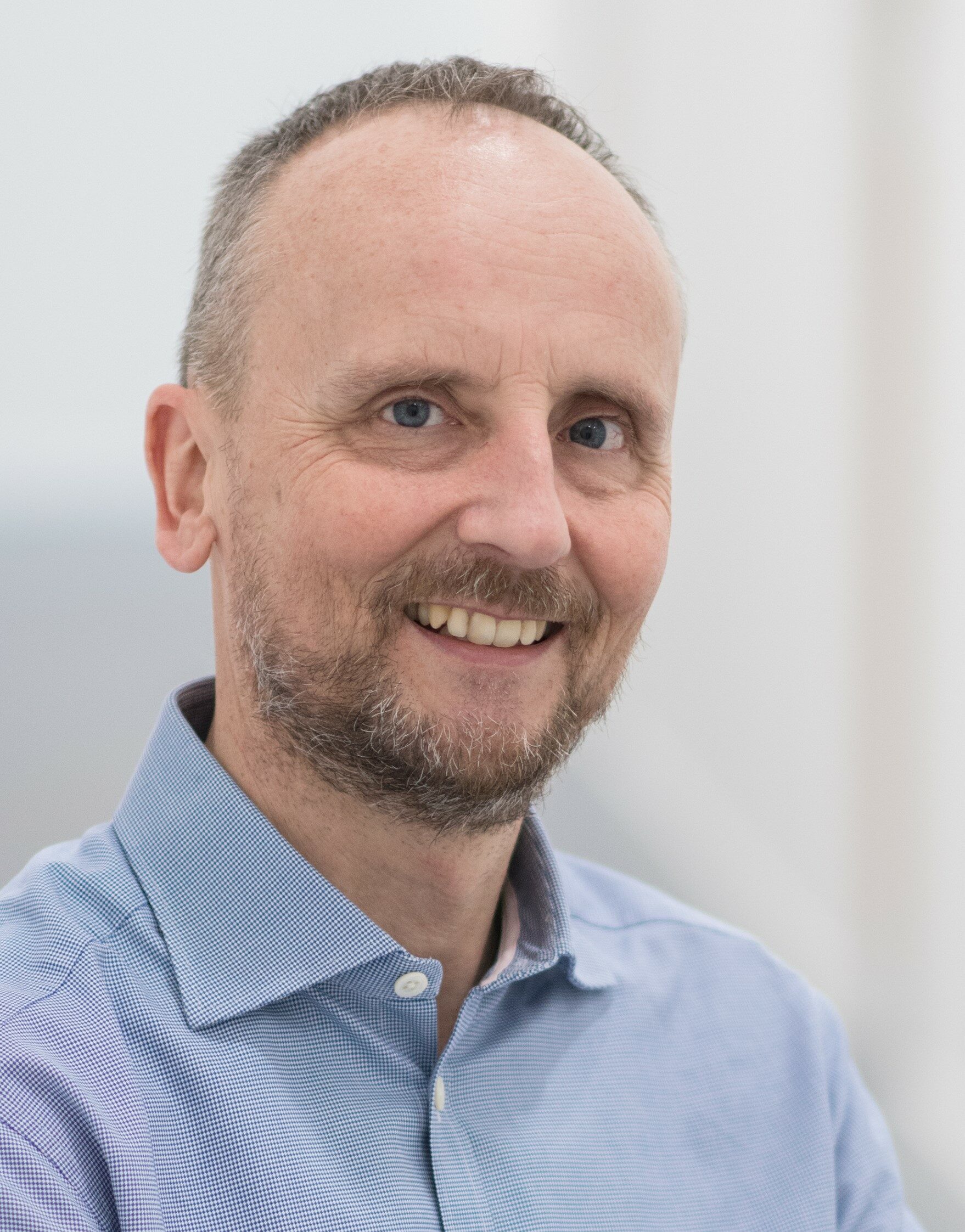
The Strings Club
In 2012, professional violinist and music teacher Amy Cunningham decided to put on a holiday camp for primary school children in Camden, north London. Six children came. But at the end of it, the parents asked: ‘when is the next one?’
It was a lightbulb moment. Since then, her business The Strings Club has welcomed nearly 500,000 children on Ofsted-registered holiday camps in seven locations, providing more than 10,000 hours of childcare and music education.
The Birmingham-based Strings Club also runs online lessons for guitar, violin and ukulele and provides music support to primary schools – working with many of the country’s top string teachers to offer award-winning, bespoke programmes.
When the Covid pandemic struck, it could have been make or break for The Strings Club. Holiday camps booked for the Easter holidays had to be scrapped. “We wanted to continue our ethos of inspiring children to do music,” she says, but it meant rapidly changing the business.
Within a week, Cunningham had developed online classes from scratch. “We hadn’t had them before and they have proved very popular, so now we run them every Saturday.”
The holiday camps, which previously looked after up to 40 children per day, have had to be restricted to a single set of 15 children to stay the whole week. “It has completely changed our business model,” says Cunningham. “One of the hardest things was to convince the venues that we had the knowledge and experience to run them safely in a Covid environment but I don’t take no for an answer. We have ended up having a highly successful summer, offering over 900 hours of care and working with 300 children.” And now The Strings Club can provide one to one online lessons for many of the children who want to continue after holiday camp.
Her fighting entrepreneurial spirit is not in doubt but Cunningham’s timely attendance in January on the West Midlands Creative Scale Up programme has inspired in her a growth mindset.
“It was great to meet the wider ecosystem of entrepreneurs in Birmingham and it was really refreshing to be on a programme that was specifically for creatives,” she says, “and the idea of a growth mindset has stayed with me. It’s too easy to get overly excited about each new idea. The Scale Up Programme helped me to focus on what it will take for The Strings Club to scale up.”
That growth will come through franchising, which Cunningham sees as the natural direction for the business. “It represents a low-risk and low-cost business opportunity and it is a very systematic approach,” she says.
“People laugh when I say I work in holiday camps but the childcare market is worth £5bn a year in the UK alone, and high-quality childcare is one of the fastest growing sectors in the franchise market,” she says, “and we are combining the best in childcare and musical education.”
Franchisees will gain access to full training and support, an exclusive area, a dedicated website, and thousands of pounds worth of equipment and instruments. Currently, The Strings Club is offering grants of up to £2,500 to help people start up their own franchises.
“People are looking for additional income and we can show that they can earn a decent income through The Strings Club, working part-time when it suits them. She says she is “not necessarily” looking for musicians – “we’re looking for business-minded people with a passion for music.” She is also finding that parents who are fans of The Strings Club are becoming prospective franchisees when they move into a new area.
So 2020 has been one that has boosted Cunningham’s confidence in the future of the business. “I’m really excited about the future of The Strings Club,” she says. “What I have learned this year is to simplify things and to have a growth mindset. I was generating work for people but I am even more passionate now, as more people find themselves in more difficult conditions. The Strings Club can create opportunities and income for them – as well as developing a lifelong love of music-making in tens of thousands of children.”
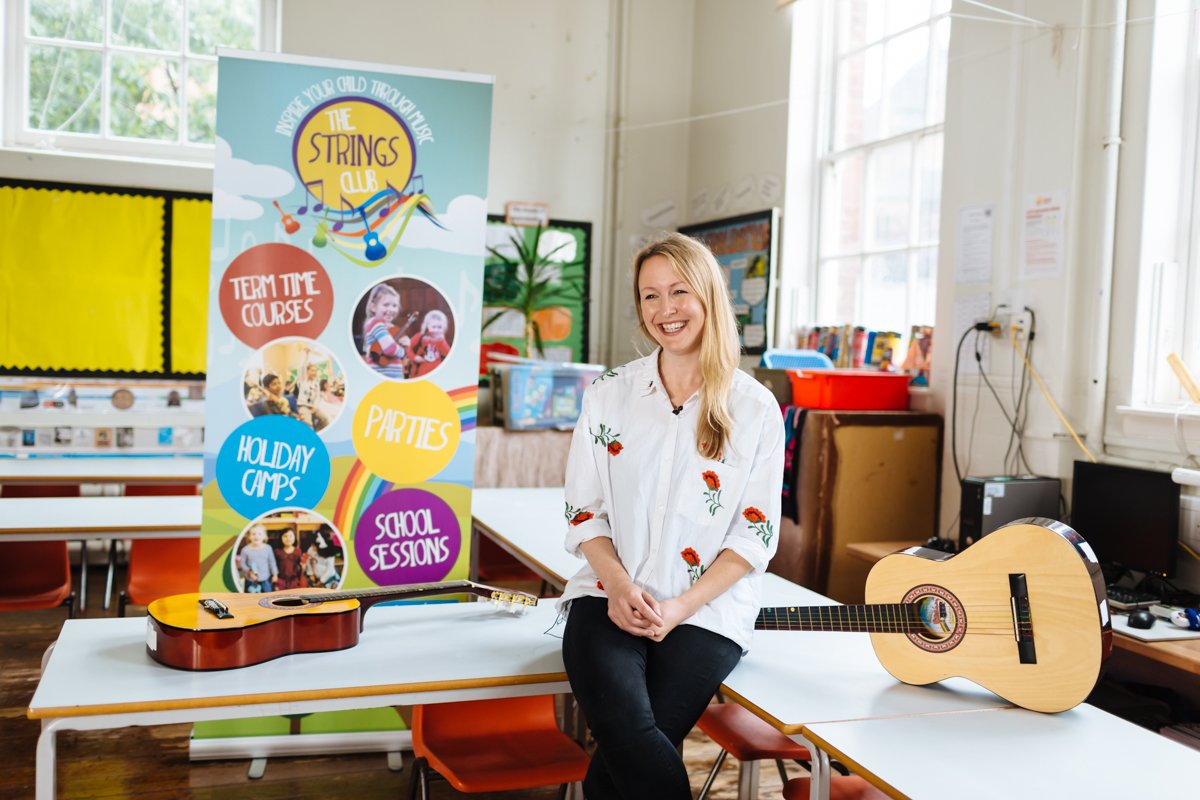
TouchByte
2020 was going to be a big year for TouchByte. And it has been. In fact, it’s put the Cornish company on a potentially huge growth trajectory. It’s just a different trajectory that founder Jeremy Sneller was planning in January.
The five-year-old company had been developing a number of face recognition technology applications for the retail and hospitality sectors – and it was time for take-off. Partnerships were in place. Customers were lined up for trial installations. But then, with Covid, business in that particular sector dropped off a cliff steeper than any on the Cornish coastline.
It was time for a rapid pivot. TouchByte identified the construction sector as an opportunity. As construction sites re-opened from lockdown, workers needed to have a system for secure and contactless access. “They had either been using fingerprints, push buttons or were reverting to pen and paper,” says Sneller.
He saw that TouchByte had a potential solution – a push button system for drug cabinets that it had been developing to pitch to the NHS. This could be adapted into a contactless system that would enable workers to gain access to a site quickly and efficiently without the need to touch anything.
With the support of business advisers Business West, TouchByte successfully applied for an Innovate UK grant to redesign the device and take on digital resources to develop its integration with a partner company’s workforce management software. The corporate collaboration was vital in order to create a complete system for the construction industry.
That Innovate UK grant has been transformative. Within months, the system had been built and installed as a proof of concept at a railway station site in London. Project demonstration kits are now being introduced into other sites. Specialist construction software companies have been in touch to discuss partnerships.
“The scale of the opportunity is huge,” says Sneller. A large construction site, for example, will have up to eight gates for its workers – each one with an entry and exit that requires face recognition access. “There is absolute demand; there are hundreds of construction sites all crying out for contactless access solutions,” says Sneller. “Our immediate challenge is to scale up the manufacturing of the device, ensuring we can do this at pace and high quality.” New partnerships are being signed up to install, deliver, integrate and support the solution.
To finance this growth, Sneller plans to seek potential investors in early 2021 – “we have the proof of concept and some big names on board but we will need money for growth and investment in people” – as well as applying for further Innovate UK grants.
“Being a biometrics company in Cornwall is a bit radical, and we have had great support from the local ecosystem such as Cornwall and Isles of Scilly LEP and Cornwall Trade & Investment,” says Sneller. Before lockdown, the company had been based in the Tremough Innovation Centre on the University of Exeter campus in Falmouth, a shared office space which has been “massively valuable,” particularly because it is the home to other digital companies with whom TouchByte can collaborate.
Grant support has enabled him to take on local graduates. The company has six full-time employees at present – a figure that Sneller reckons will double next year. As an enterprise adviser to the local Penryn College, Sneller is committed to nurturing and encouraging local talent. We will build this locally. He has a particular focus on the under-25s – “anyone older wants to go on a course to learn something while the younger ones just use Google and get on with it. They can turn things around so quickly! I am really keen to show that you can have a technology career in rural Britain.”
The secular trend is that more people are accepting face recognition technology. “We unlock our car and our house and office using it. We accept it in travel. We can use it to pay for things. Face will be a medium for all sorts of transactions.”
This means that TouchByte’s ambitions will not just be focused on the construction sector. Already, opportunities are emerging in the healthcare sector and, Sneller notes, “hotels are coming back on stream, so we may yet get back into hospitality and retail.”
“It’s been a year that has gone from ‘oh shit’ [crisis/near despair] to being the best that could have happened to our business,” he laughs.

ZeroLight
In Newcastle, ZeroLight is revolutionising the way the world buys cars and power-sport vehicles. And the impact of Covid has been to accelerate its global scaling.
The 3D visualisation company started as an incubator within a computer games firm which specialised in racing car games. It was asked to help with the launch of the Jaguar F Type back in 2008 by creating a configurator – a software platform that enables a buyer to pick their desired options in their car specification and immediately see it rendered on screen.
Today, ZeroLight’s cloud-based interactive and infinitely customisable 3D renderings of vehicles are being used by brands such as VW, Audi, Lucid, BRP and Lamborghini.
“We were the first to do this type of work,” says CEO Darren Jobling. “It requires special technical skill sets to achieve both the visual quality while incorporating the massive number of possible configurations on an average car.” The company owns a suite of proprietary technology – the clever stuff that makes the vehicle look real to the viewer.
Over the past decade, ZeroLight had been knocking on the door, trying to educate and persuade the automotive and power-sports industry. “The manufacturers had sold vehicles in a certain way for years and we were having to explain why our products were the future.”
But when the world went into lockdown, car and power-sports manufacturers lost their ability to sell their vehicles as they had no ability to contact the consumer. They had to digitise their sales offering. And what had been a slow process of digital evolution has become a year of revolution for ZeroLight as its platform became a priority. “One major manufacturer asked us to devise something on Monday, it went to the CMO on Wednesday, and they ordered it on Friday.”
Currently employing 130 people, ZeroLight has recruited 47 people in 2020 – 35 of whom were onboarded under lockdown.
The company has strengthened its management team, including a new delivery director with a specific remit of scaling the company in terms of project management, but Jobling acknowledges that “there is going to be some creaking at the seams as we scale up.”
Simon Robinson and Bill Collis, co-founders of the Oscar-winning visual effects company, The Foundry, became advisers to the ZeroLight board this year. “I’m a great believer in that you don’t have all the answers and in mentoring,” says Jobling, “so it’s thought provoking and good to get the perspectives of others. But to have Simon and Bill, who have had massive success in creating products to service the movie industry, is tremendous.”
In December 2019, a further round of finance was raised from the Dutch investment vehicle Ponooc (a fund owned by the family that distributes VW group vehicles in the Netherlands). “The timing was very fortuitous as all of our plans were well financed before Covid struck,” says Jobling. “They have provided specific automotive expertise which has been really valuable as we scale. But ultimately, whenever you take money, it’s all about the people because they will be around long after you’ve spent the money.”
Jobling is committed to sourcing local talent and is close to five local universities (Newcastle, Sunderland, Northumbria, Durham and Teesside). “We decided to get more involved. We contribute to the syllabuses, do guest lectures, speak to university staff – and not just on the recruitment days – in order to forge a stronger relationship with the universities. We want the teaching staff to tell their students about this company that’s based in the north-east and is doing exciting things and which they might want to join. That’s been particularly successful.”
Equally, he adds, the talent pool has become a lot bigger since Covid. The company is now casting its net a lot wider, with new recruits joining remotely from countries such as Brazil and Korea.
Over the past three years, revenues have increased by 60% – turnover for the year to March 2020 stood at £7m. But the real scaling is just about to begin. “ZeroLight is very, very scalable,” says Jobling. “Once we have put a digital model of the vehicle in the cloud, everyone – agencies, dealers, territories – can access that model and produce digital content.”
With ZeroLight’s technology, vehicle launches can take place online, showcasing the vehicle in an exotic location, with viewers able to open the doors and inspect every detail. Journalists can get the right images for their articles without a physical photoshoot. And, of course, potential buyers are able to specify a vehicle with access to every single trim option and configuration the manufacturer offers.
One particular development will lead to a significant rise in revenues, he says, is when the manufacturers move their ZeroLight-powered configurators outside of their own websites and onto marketing platforms such as Facebook. “We will be accessing new budgets and that will lead to rapid scaling.”
Jobling has also set his sights on adjacent markets such as mobility, transport and recreation. “We certainly want to see our technology scaling outwards in other vertical sectors.”
And it’s a big world out there. ZeroLight has a joint venture studio in Chengdu (which is an inheritance from the original computer games firm when it went on a tour of China under the Government’s Passport to Export programme). There are sales and marketing operations in Germany and the USA. The studio in China employs just over 20 people but that will grow,” says Jobling. “China is a major target market; its scale is breath-taking.”

 Local Area Summaries
Local Area Summaries
CONTENTS

Introduction 2020

Chapter 1 2020
The Scaleup business landscape

Chapter 2 2020
Leading Programmes Breaking Down the Barriers for Scaleups

Chapter 3 2020
The local scaleup ecosystem

Chapter 4 2020
Shaping policy to foster UK scaleups: Breaking down barriers

Chapter 5 2020
Looking Forward

Scaleup Stories 2020

Annexes 2020

 Previous
Previous
Share